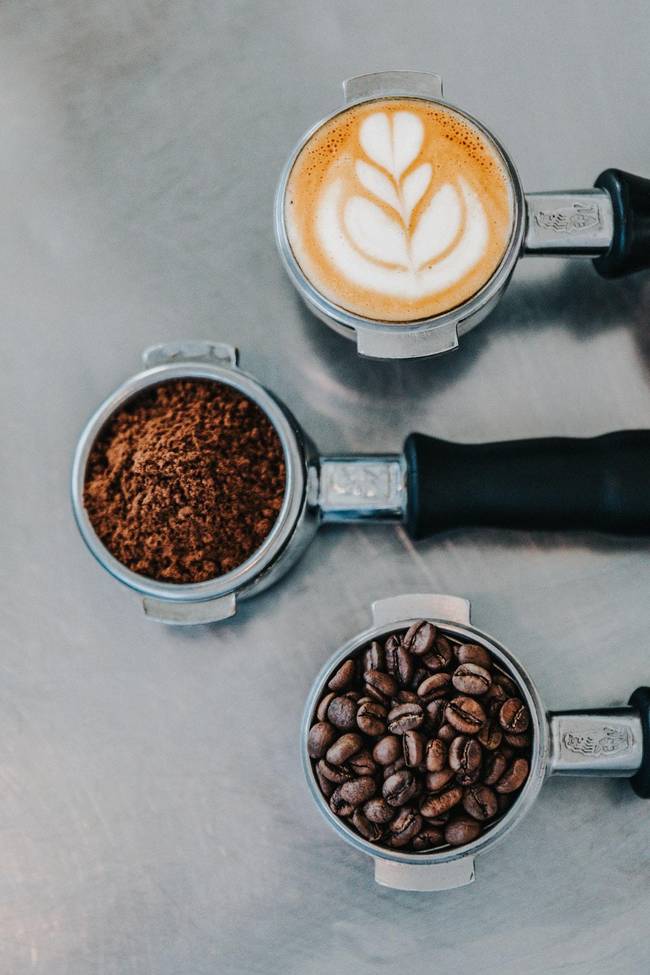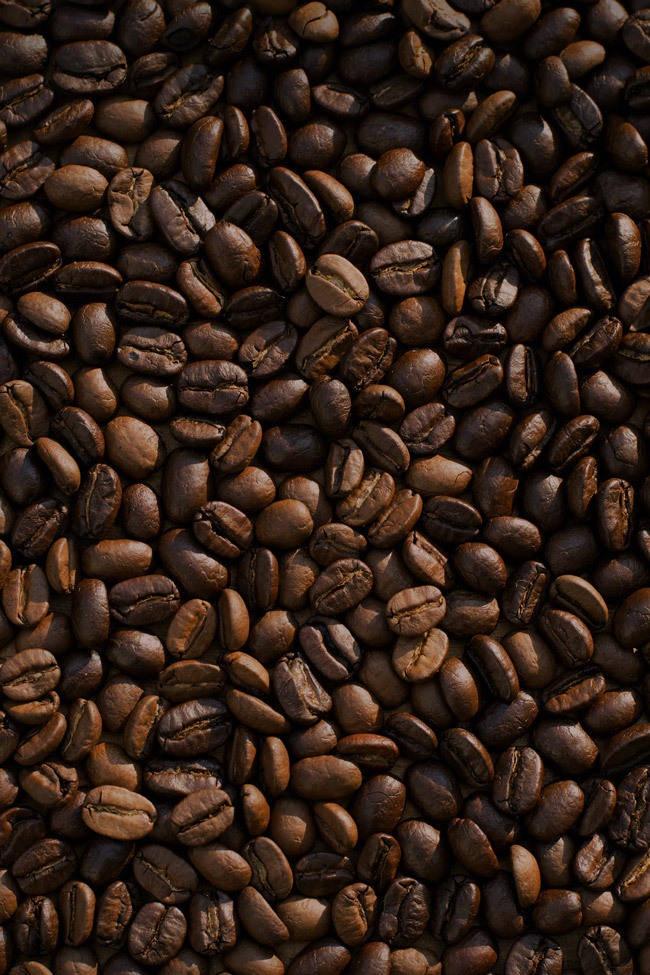Coffee ranks among the world's most consumed beverages, powering professionals, athletes, and high achievers daily. For men who prioritize performance in both work and life, coffee offers more than just a morning ritual - it delivers specific, science-backed benefits that enhance physical capabilities, mental performance, and long-term health outcomes.
If You Could Give A Healthy Eating Tip to Your Younger Self, What You Share?
- Black coffee increases dopamine production, improving mood, motivation, and focus for demanding professional environments.
- The caffeine in coffee boosts metabolic rate by 3-11%, though effects are smaller in habitual drinkers and older or obese men.
- Regular coffee consumption is associated with reduced Type 2 diabetes risk - approximately 8% lower risk per daily cup, up to 50% lower with 6+ cups daily.
- Coffee drinkers show slower cognitive decline and less amyloid deposition compared to non-coffee drinkers.
- Coffee provides more antioxidants than any other food source in the average American diet, particularly when properly filtered.
For optimal benefits, timing matters: caffeine effects peak 45-60 minutes after consumption, making this the ideal pre-workout or pre-meeting window. For exercise performance, 3-6 mg of caffeine per kg of body weight provides the most consistent benefits.
- Optimize Mental Performance When It Matters Most
- Power Your Physical Performance
- Protect Long-Term Health and Vitality
- Coffee vs. Other Caffeine Sources: What Men Should Know
- Coffee Around the World: Travel Insights for Coffee Enthusiasts
- Optimize Your Coffee Routine for Maximum Benefits
- Potential Side Effects and Considerations
- Coffee Is A Strategic Resource For Better Men's Health
Optimize Mental Performance When It Matters Most
Coffee delivers cognitive enhancement that directly benefits career-focused men. According to a comprehensive meta-analysis published in Neuroscience & Biobehavioral Reviews, caffeine improves alertness, vigilance, reaction time, and working memory by approximately 10%, with effects most pronounced for complex tasks requiring sustained attention.
Unlock Peak Mental Focus
The psychoactive stimulant in coffee works by blocking adenosine receptors, preventing the feeling of mental fatigue. When caffeine binds to these receptors, it blocks adenosine's normal action, which is to slow nerve cell activity and cause drowsiness, thus creating a stimulating effect.
Coffee consumption also promotes neuroprotective effects that defend against cognitive decline. Recent longitudinal studies with brain imaging show that regular coffee drinkers experience slower cognitive decline and less amyloid deposition compared to those with low intake, suggesting protective mechanisms against age-related cognitive deterioration.

Power Your Physical Performance
For men who maintain an active lifestyle, coffee serves as an effective pre-workout performance enhancer. The American College of Sports Medicine confirms that consuming 200-400mg of caffeine (equivalent to 1-2 cups of coffee) 30-60 minutes before training improves performance.
Maximize Workout Results
Coffee stimulates adrenaline production, delivering the same benefits as specialized pre-workout supplements without the artificial additives. A comprehensive meta-analysis in the British Journal of Sports Medicine found that caffeine typically improves muscular strength and power by 2-7% during resistance exercise, with individual results varying based on caffeine habituation and genetic factors.
For men focused on body composition, coffee offers additional benefits. According to research from the University of Granada involving 15 men, caffeine consumption increases fat oxidation during aerobic exercise by 10.7% in the morning and up to 29% in the afternoon when consumed 30 minutes before activity. This effect appears most pronounced during sustained moderate-intensity activities like cycling or running.

Protect Long-Term Health and Vitality
Men in their prime career years benefit from coffee's preventive health properties that support longevity and quality of life.
Support Metabolic Health
A landmark Harvard cohort study tracking over 40,000 men found a clear dose-response relationship between coffee consumption and reduced Type 2 diabetes risk. Each daily cup was associated with approximately 8% lower risk, with men consuming 6+ cups daily showing up to 50% lower risk compared to non-coffee drinkers. The chlorogenic acids in coffee appear to improve insulin sensitivity and glucose metabolism, particularly beneficial for men over 40 when metabolic efficiency naturally begins to decline.
Enhance Antioxidant Protection
Coffee provides more antioxidants in the average American diet than any other food source, according to research from the University of Scranton, showing coffee supplies approximately 40% of total antioxidant intake in the typical American diet. These polyphenols combat oxidative stress, potentially reducing inflammation and supporting cellular repair processes that maintain vitality as you age.
It's worth noting that brewing method matters - paper-filtered coffee removes diterpenes (cafestol and kahweol) that can raise LDL cholesterol, while unfiltered methods like French press retain these compounds. For cardiovascular health, filtered brewing methods offer advantages for men concerned about cholesterol management.

Coffee vs. Other Caffeine Sources: What Men Should Know
When comparing caffeine options, understanding the unique benefits of each source helps optimize performance benefits while minimizing potential downsides.
Coffee vs. Tea: Different Benefits for Different Goals
While both deliver caffeine, coffee provides 95-200mg per cup compared to tea's 25-70mg, making coffee more effective for immediate performance enhancement. However, according to a 2024 comparative analysis in the Journal of Nutrition, tea provides L-theanine alongside caffeine, creating a more sustained, focused alertness without coffee's potential jitters.
"Coffee delivers more immediate performance benefits, while tea offers a more sustained cognitive enhancement curve," notes Dr. Michael Breus, sleep specialist and author of "The Power of When."
Energy Drinks and Pre-Workouts: Effective But Complex
Modern energy drinks deliver 80-300mg of caffeine alongside amino acids, B vitamins, and various stimulants. While effective for immediate performance boosts, research from the Mayo Clinic cautions that the combination of multiple stimulants can increase heart rate and blood pressure more significantly than coffee alone - an important consideration for men over 40.
Alternative Caffeine Sources
Caffeine appears in numerous other forms:
- Dark chocolate (20-60mg per ounce)
- Caffeine mints and gum (40-100mg per piece)
- Workout supplements (100-300mg per serving)
A 2023 meta-analysis in Sports Medicine found that caffeine's performance benefits remain consistent regardless of source, making the choice primarily about convenience, additional ingredients, and personal tolerance.
Coffee Around the World: Travel Insights for Coffee Enthusiasts
The geographical origin of coffee beans significantly impacts both flavor profile and health benefits, creating opportunities for both travel experiences and strategic consumption.
Regional Benefits Vary Significantly
Ethiopian Yirgacheffe beans contain approximately 30% higher concentrations of chlorogenic acid than typical South American varieties, according to research published in Food Chemistry. This makes East African coffees particularly beneficial for men focused on metabolic health and blood sugar management.
Meanwhile, beans from high-altitude regions of Colombia and Guatemala contain greater concentrations of trigonelline, a compound that supports cognitive function and neuroprotection according to the Journal of Agricultural and Food Chemistry.
Coffee Tourism Destinations
For men who combine business travel with leisure experiences, coffee regions offer unique opportunities:
- Costa Rica's Central Valley provides immersive coffee farm tours where visitors experience traditional processing methods
- Hawaii's Kona region offers tours of small-scale operations with limited production runs
- Vietnam's coffee culture demonstrates unique preparation methods that maximize caffeine extraction
Optimize Your Coffee Routine for Maximum Benefits
Timing, preparation, and quality significantly impact the performance benefits men receive from coffee consumption.
Strategic Timing for Peak Performance
For professional performance, consuming coffee 30 minutes before important meetings or creative work aligns with peak caffeine absorption. Research from the University of Barcelona shows cognitive enhancement peaks 45-60 minutes after consumption and gradually declines over 4-6 hours.
For fitness benefits, the most consistent ergogenic window is 3-6 mg of caffeine per kg of bodyweight consumed 30-60 minutes before exercise, according to the International Journal of Sport Nutrition. Note that tolerance develops in approximately 3 days of consecutive use, so occasional "caffeine breaks" may help restore maximum effectiveness.
Individual Response Factors
Genetic differences significantly impact caffeine metabolism. Research on CYP1A2 polymorphisms shows some men process caffeine up to four times faster than others, affecting both performance benefits and side effects. "Fast metabolizers" may benefit from caffeine closer to exercise time and experience fewer sleep disruptions from afternoon consumption.
Quality Matters More Than Quantity
Single-origin, freshly ground beans preserve more bioactive compounds than pre-ground alternatives. A 2024 analysis in Food Chemistry found that coffee loses up to 60% of its antioxidant compounds within two weeks of grinding, making investment in quality beans and proper storage essential for maximizing health benefits.
It's important to note that heavily sweetened coffee drinks can negate many metabolic benefits. For optimal health outcomes, consider black coffee or preparations with minimal sweeteners and low-fat milk rather than sugar-laden specialty drinks.
Potential Side Effects and Considerations
While coffee offers numerous benefits, being aware of potential drawbacks helps maximize advantages while minimizing risks:
- Caffeine's half-life averages 5-6 hours, potentially disrupting sleep quality if consumed later in the day
- Men with hypertension, arrhythmias, or anxiety may experience exacerbated symptoms
- Consuming coffee on an empty stomach may temporarily spike cortisol and worsen acid reflux in susceptible individuals
- Certain medications interact with caffeine, including some antibiotics, antidepressants, and beta-blockers
Men with pre-existing medical conditions should consult healthcare professionals about optimal caffeine consumption patterns and potential interactions with medications.
Coffee Is A Strategic Resource For Better Men's Health
Coffee provides men with a powerful, evidence-based tool for enhancing both immediate performance and long-term health outcomes. From boosting cognitive function and workout results to reducing disease risk and supporting metabolic health, coffee delivers benefits that align precisely with the needs of achievement-oriented men. Large U.S. cohort studies link moderate coffee consumption (3-6 cups daily) with approximately 10% lower all-cause mortality risk compared to non-coffee drinkers - a compelling reason to make quality coffee part of your daily performance strategy.
